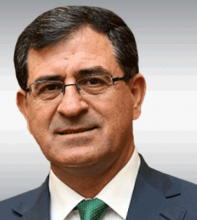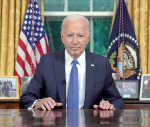You are here
Rebuilding confidence in Davos
Jan 22,2024 - Last updated at Jan 22,2024
Under the theme “Rebuilding Confidence”, the fifty-fourth annual meeting of the World Economic Forum (Davos) took place over five days from January 15 to 19, 2024, in Davos, Switzerland. Held in a year marked by hopes for overcoming pandemic repercussions and energy shocks, the forum aimed to outline a more stable period after three turbulent years. However, recent developments in the Middle East shattered these expectations, revealing persistent global crises. The meeting faced new challenges in an era of geopolitical shifts and emerging crises.
Over 300 public figures, including over 60 heads of state and government, participated in this year’s forum. They discussed various issues, ranging from global elections and their potential impact on international alliances to climate challenges, economic disparities among nations, artificial intelligence, and its effects on productivity and labour markets. Additionally, they addressed geopolitical tensions, which exceeded 90 conflicts globally, costing the global economy a staggering $17.5 trillion.
The decline in confidence levels can be explained by the ten challenges discussed at the forum. These challenges included the issue of misleading news, extreme weather conditions, the growing social divide known as populism, cybersecurity threats, armed conflicts between nations, economic opportunities fluctuations, rising inflation rates, forced displacement, economic contraction, and pollution.
Clearly, Davos’ agenda this year goes beyond pure economics, reflecting global geopolitical developments and their significant financial, monetary, and economic consequences. This made the forum an opportunity for convergence and finding solutions to numerous global risks and issues.
Regarding regional geopolitical tensions, participants discussed key geopolitical issues in specific areas such as Europe and the Middle East and their potential impact on global stability. They talked about the uncertainty in international relations and how to deal with shifts in these relations, especially amid growing tensions between the United States and China and their potential impact on the global economy.
Concerning the upcoming elections in various countries, participants focused on how election results would affect alliances and international relations. The forum addressed the impact of election results on economic policies, emphasizing market stability and the quality of developmental policies.
Participants delved into climate challenges, emphasising the need to balance economic growth and sustainability. This includes exploring ways to promote the green economy and move away from policies contributing to pollution, with a focus on effective measures to adapt to climate change effects and reduce harmful emissions.
They also discussed economic disparities, the pandemic’s impact, global economic recovery, and particularly the challenges and opportunities related to the world economy’s recovery after the negative effects of COVID-19. The forum highlighted ways to reduce income inequality between social classes, contemplating policies that promote economic equality.
Participants didn’t overlook discussing the impact of artificial intelligence on jobs and the labour market, addressing how to enhance employment opportunities and boost workers’ skills to adapt to these transformations. They touched on the ethical aspects of technology development and adoption, with a focus on preserving workers’ rights and ensuring comprehensive development.
Analysts warned that the global economy is on track to end 2024 as the slowest half-decade of GDP growth in 30 years. Other issues dominating the agenda included the massive levels of debt accumulated by developing economies to handle multiple crises like COVID-19, energy shortages, and climate change. Many developing countries acknowledge financial pressures amid rising costs of food, energy and borrowing.
It’s evident that the magnitude and complexity of the issues discussed in Davos days exceed the participants’ ability to find solutions and settlements needed to deal with these risks and conflicts. The responsibility falls on the shoulders of officials in countries to find creative solutions, leverage untapped potentials, and implement necessary actions and strategies to rescue their economies before reaching regrettable conditions.















Add new comment